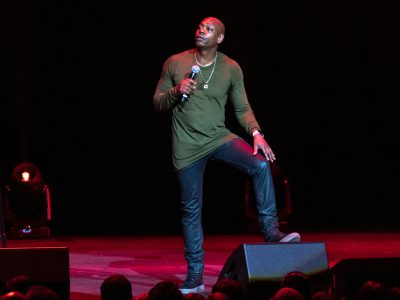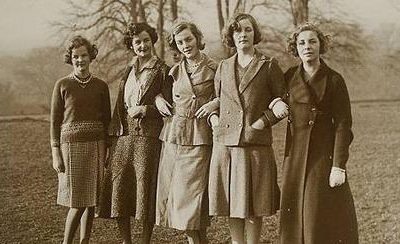WP_Post Object
(
[ID] => 9722
[post_author] => 15
[post_date] => 2025-11-04 14:12:36
[post_date_gmt] => 2025-11-04 14:12:36
[post_content] =>
Queer relationship visibility isn’t good enough if all it does is replicate heteronormative approaches.
Soapbox is a series where people make the case for the sometimes surprising things they feel strongly about.
Like any faithful reality TV fangirly, I dutifully invest many hours of my brief and precious human life into my little shows. I dwell unabashedly in the cult of reality standom: My housecleaning rituals include day-long marathons of shows like Vanderpump Rules or 90 Day Fiancé, where I empty my closets and scrub my floorboards to the tune of a full season, filling my home with the sounds of strangers’ arguments, diary cam thoughts, and curated confessionals.
For me, this isn’t just entertainment. I am endlessly fascinated by human relationship dynamics, and the belief systems that shape them. Much of reality television serves as my personal laboratory for examining these phenomena in action—and I absorb every minute with rapture. This is especially true within my favorite subgenre of all, reality romance, which I find particularly compelling because of the ways it reveals the ubiquity of heteronormativity in our collective consciousness. It’s also why I think we are long overdue for more queer reality romance—including shows that actually explore queer relationship frameworks, rather than just LGBTQ+ casting.
From classics like The Bachelor and Rock of Love to contemporary hits like Love is Blind, shows where total strangers form attachments to one another and make legally binding commitments in intense, pressurized, and unnatural situations are canonical. They’re also historically very heterosexual, something that hasn’t changed even as casting has diversified.
Accurate, dynamic queer representation across all media is essential, and desperately overdue. Thanks to LGBTQ+ reality shows like Tampa Baes, The Real L Word, and the I Kissed a Boy franchise, we’ve finally been able to see a variety of sexualities and genders normalized in a dating context. And thank goodness! But as entertaining as these programs might be, queer relationship visibility isn’t good enough if all it does is replicate heteronormative approaches—and when it comes to relationships where personal autonomy and romantic intimacy are successfully balanced, these shows are falling short.
With its second season out last summer, breakout hit The Ultimatum: Queer Love might be the most popular of the LGBTQ+ reality romance genre, both for queer and straight viewers alike. It’s also a strong (and, for better or worse, incredibly entertaining) case study in the pitfalls of dropping queer contestants into heterosexual dating frameworks, especially on a global stage. The plot features five couples on the lesbian spectrum who have reached an impasse in their relationships—one partner wants to get married, the other does not, and the former has issued the latter an ultimatum: Marry me, or we’re breaking up.
The show aims to “help” castmates gain clarity about their present dilemma by presenting them with an opportunity to explore partnership with someone new. But not just anyone new: Castmates date each other.
In front of the partners they arrived with.
Participants have one week to select a new partner, and then immediately move in with that person for a three week “trial marriage,” which some of the new couples consummate. They then each move back in with their original partner for another three week “trial marriage” before decision day.
The end goal is either for castmates to leave the show engaged—whether to their original partner, or to someone they just met under fast, furious, and fantastical circumstances—or, if they’re still not ready to commit, to walk away single. And of course, things go off without a hitch, everyone is super mature about everything, and no one ends up brokenhearted or publicly humiliated.
Now, maybe this plotline conjures images of the chaotic, toxic, and mysteriously elusive “U-Haul lesbian”. Yet that instinct would be misguided: In reality, The Ultimatum: Queer Love is a spin-off of The Ultimatum: Marry or Move On, a pre-existing show with the exact same premise, but a heterosexual cast.
When the main focus of a show is for participants to “find love,” however, especially when the premise pressures them into making quick decisions about marriage or monogamy, the ghastly, unflattering light of patriarchy spares no one—something the landscape of LGBTQ+ reality romance makes clear. This is also one reason why copy-pasting heteronormative relationship frameworks onto a queer cast is particularly dangerous. On the whole, as a society, we are not trained to recognize misogyny when it doesn’t come from cis men, something that can quickly translate into queerphobia: When queer folks embody patriarchal values, people around them may be tempted to blame queerness, rather than patriarchy, for any ensuing problematic behavior. Queer people struggle enough with this inside our own communities already; something that compounds when media about us continuously reiterates stereotypes about gender, power, and control. This is particularly visible in reality television, from the lesbian sex scenes that border on soft porn, to the queer fuckbros whose predatory behavior towards femmes goes largely unconfronted, to cis women whose emotional abuse of their femme, masc, and genderqueer partners does not ring alarm bells the way it would if a cis man were behaving the same way.
The entire Ultimatum franchise is part of a robust and patriarchal legacy within the genre, where marriage is treated as an achievement, especially for women and femmes, and prioritized over everything, even at the expense of healthy bonds and connections. But to simply recycle the plotlines of heteronormative reality shows and transpose them onto a queer cast is not only creatively lazy; it exposes the errors of these shows’ premises at their core.
“[R]eality television…has created a falsified account of how certain people are meant to behave, communicate and love, and the majority of the victims to these production tactics are women,” wrote Lindsey Spencer in a 2022 article for the Michigan Daily.
Where patriarchal marriage is the prize, women and LGBTQ+ folks will always get the short end of the stick, even when they “win.” I’m not knocking marriage as an institution—big fan, actually—but patriarchal marriage? One where gender is, whether consciously or unconsciously, viewed as binary, and where partners and/or traits perceived as “feminine” are subjugated to partners viewed as “masculine”? Where the praxis of the relationship itself eliminates the possibility of true intimacy? Where my partner and I are beholden to monogamy, rather than deciding whether we want to choose it anew, as the seasons of our lives unfold?
Ew, no.
This is also precisely why I believe we’d all benefit from some more queering of reality romance. What if, instead of watching people wrestle their partners into making high-stakes commitments, audiences were offered a window into a cast of queers exploring alternative frameworks and modalities for love and connection? Reality fans would still get to absorb all the juicy human drama we hold so dear, but we’d also get to witness people grow and change in ways for which current plotlines don’t allow.
In the current season of The Ultimatum: Queer Love, for example, an interesting situation cropped up during the initial re-shuffling of couples that might have played out very differently outside of the show’s rigid framework. A mutual attraction developed between one participant, Pilar, and both halves of one original couple, Kyle and Bridget. When, independently of one another, the pair learned that Pilar was interested in them both, they each encouraged her to explore the other, vouching for each other’s radness.
The show’s most visibly genderqueer couple so far, Kyle and Bridget already stood out from the pack. But they were also, in my opinion, the most mutually respectful couple the show has seen—something made clear throughout the season. Eventually, Pilar and Kyle selected one another for the trial marriage, and Bridget ended up with someone else. After Pilar and Kyle shared a kiss during their time together, Kyle quickly disclosed it to Bridget once they were reunited for their own “trial marriage.” While Bridget was visibly miffed, she and Kyle continued to have productive, open, and tender communication as they worked through a difficult conversation.
It was an intriguing plot line, for sure, and played out as healthily as it could have within the scope of the show. But how much more interesting would it have been to watch Pilar, Kyle, and Bridget explore what it might be like to date as a trio? Or to watch them even have that discussion? I wonder how they may have all impacted each other’s lives differently, and whether stronger friendships or romances could have blossomed if they hadn’t been confined to the show’s rules.
Something as simple as that could have changed not only the trajectory of the contestants’ lives but, arguably, perhaps the trajectory of a viewer’s life, too. Witnessing couples undertake that type of exploration, safely and from a place of mutual trust, could be the very representation that some viewers need, queer or straight. It could also be a gateway for them to learn about their own relationship preferences, or even expose them to the fact that alternatives are possible.
Beyond that, this more expansive approach would bring us closer to true representation, not just its bare minimum. The reality romance industry profits greatly from our identities, and queer viewers deserve something beyond an “LGBTQ+” label on the dropdown menu of our favorite streaming sites. After decades of witnessing countless reality stars run the hamster wheel of heteropatriarchy, I, personally, am ready for something a bit more nuanced—and, frankly, a lot more queer.
[post_title] => Why Isn't LGBTQ+ Reality TV More... Queer?
[post_excerpt] => Queer relationship visibility isn’t good enough if all it does is replicate heteronormative approaches.
[post_status] => publish
[comment_status] => closed
[ping_status] => closed
[post_password] =>
[post_name] => lgbtq-reality-television-tv-dating-shows-the-ultimatum-queer-love-representation
[to_ping] =>
[pinged] =>
[post_modified] => 2025-11-04 14:12:40
[post_modified_gmt] => 2025-11-04 14:12:40
[post_content_filtered] =>
[post_parent] => 0
[guid] => https://conversationalist.org/?p=9722
[menu_order] => 0
[post_type] => post
[post_mime_type] =>
[comment_count] => 0
[filter] => raw
)


 Nancy Mitford[/caption]
Linda abandons her first husband: that is Diana, who left her own husband to marry Sir Oswald Mosley, the leader of Britain’s tiny smudge of fascists. She falls in love with a communist: Jessica. Then a Frenchman: Nancy. She is superficially kind: Deborah.
Linda is that mercurial thing: charming. Charm is the ability to seduce people against their better instincts. She is a feather in the wind. Such people do not take responsibility. They do not have to. The Pursuit of Love is essentially redemptive: for the Mitfords and for the aristocracy. It is the founding document of the Mitford cult—without it, there would be no cult—and it is self-serving. They only pursued love, after all—who doesn’t? In response, I can only purse my lips and say: Nazis?
The truth of their fascism—Diana was Mosley’s lover and helpmeet and Unity stalked and worshipped Hitler—is more repulsive than mere viewers of The Pursuit of Love can know. There is, for instance, no scene in the novel or TV adaptation in which Unity, living in Germany, boasts that her home is a flat belonging to Jews. Which Jews, and where are they now? (It would have made a better novel than Linda shtupping a boring Communist, but Nancy was writing absolution, and the family appreciated it. On reading it, Lord Redesdale wept with happiness.)
There are many examples. “Everyone should know I am a Jew hater,” wrote Unity to the Nazi newspaper Der Stürmer, in case mere speech was not loud enough. As late as the 1980s, Diana was blaming global Jewry for the Holocaust. If they had stepped in and saved German Jews from the consequences of their own evil—by resettling them, she suggests—it might not have happened. Consider the 1938 Evian Conference, at which the assembled representatives of 32 countries expressed their regrets at being unable to provide refuge for the Jews of Germany and Austria. Apparently she missed it.
There is a tendency to present the Mitfords as Nancy did: as eccentric and therefore unthreatening aristocrats whose attachment to murderous tyranny in life was no more significant than their clothing, their manners, or their speech. They were young and they succumbed to the jackboot: that is, the line. (Unlucky, that’s all. Poor Lady Redesdale.) It is convenient—it defends the wider aristocracy from accusations of racism, of hating democracy—and it is unjust. That Unity failed to kill herself when war broke out—she lived for nine years with a bullet in her skull—does not forgive the bullets she wished on others, if they were Jews. She was once found in the garden of a friend, practising shooting for the day she could legally kill Jews. (She was a terrible shot. When she shot herself, she missed.) In England, she is only remembered as a bit odd.
[caption id="attachment_2771" align="aligncenter" width="677"]
Nancy Mitford[/caption]
Linda abandons her first husband: that is Diana, who left her own husband to marry Sir Oswald Mosley, the leader of Britain’s tiny smudge of fascists. She falls in love with a communist: Jessica. Then a Frenchman: Nancy. She is superficially kind: Deborah.
Linda is that mercurial thing: charming. Charm is the ability to seduce people against their better instincts. She is a feather in the wind. Such people do not take responsibility. They do not have to. The Pursuit of Love is essentially redemptive: for the Mitfords and for the aristocracy. It is the founding document of the Mitford cult—without it, there would be no cult—and it is self-serving. They only pursued love, after all—who doesn’t? In response, I can only purse my lips and say: Nazis?
The truth of their fascism—Diana was Mosley’s lover and helpmeet and Unity stalked and worshipped Hitler—is more repulsive than mere viewers of The Pursuit of Love can know. There is, for instance, no scene in the novel or TV adaptation in which Unity, living in Germany, boasts that her home is a flat belonging to Jews. Which Jews, and where are they now? (It would have made a better novel than Linda shtupping a boring Communist, but Nancy was writing absolution, and the family appreciated it. On reading it, Lord Redesdale wept with happiness.)
There are many examples. “Everyone should know I am a Jew hater,” wrote Unity to the Nazi newspaper Der Stürmer, in case mere speech was not loud enough. As late as the 1980s, Diana was blaming global Jewry for the Holocaust. If they had stepped in and saved German Jews from the consequences of their own evil—by resettling them, she suggests—it might not have happened. Consider the 1938 Evian Conference, at which the assembled representatives of 32 countries expressed their regrets at being unable to provide refuge for the Jews of Germany and Austria. Apparently she missed it.
There is a tendency to present the Mitfords as Nancy did: as eccentric and therefore unthreatening aristocrats whose attachment to murderous tyranny in life was no more significant than their clothing, their manners, or their speech. They were young and they succumbed to the jackboot: that is, the line. (Unlucky, that’s all. Poor Lady Redesdale.) It is convenient—it defends the wider aristocracy from accusations of racism, of hating democracy—and it is unjust. That Unity failed to kill herself when war broke out—she lived for nine years with a bullet in her skull—does not forgive the bullets she wished on others, if they were Jews. She was once found in the garden of a friend, practising shooting for the day she could legally kill Jews. (She was a terrible shot. When she shot herself, she missed.) In England, she is only remembered as a bit odd.
[caption id="attachment_2771" align="aligncenter" width="677"] The Mitford Family in 1928.[/caption]
I think that, in retrospect, their vernacular absolved them. It makes them sound unserious; gossip columnists near tyrants, and amateurs at that. For this I blame Noël Coward and Enid Blyton. We are so used to hearing the cadence and idioms of English as it was spoken in the light comedies and children’s stories of the 1930s, that it is easy to laugh at Diana’s defence of
The Mitford Family in 1928.[/caption]
I think that, in retrospect, their vernacular absolved them. It makes them sound unserious; gossip columnists near tyrants, and amateurs at that. For this I blame Noël Coward and Enid Blyton. We are so used to hearing the cadence and idioms of English as it was spoken in the light comedies and children’s stories of the 1930s, that it is easy to laugh at Diana’s defence of  Diana Mitford, later Lady Mosley.[/caption]
Diana does not write about her physical passion for Oswald Mosley, but it is made obvious by what she gave up for it. She left a rich, loving husband—Bryan Guinness— to be Mosley’s mistress, only marrying him after his wife died (of peritonitis or heartbreak, depending on who is telling). Diana not only ruined her reputation for Oswald; she was also interned for three years as a fascist sympathizer during the Second World War. She could never admit to need (six siblings and stubbornness prohibit it) and was never short of words—she posed quite successfully as a pseudo-intellectual, mostly on the basis of possessing books—but on her passion for Mosley she only said: “He was completely sure of himself and of his ideas.” Conviction was not something her father, Lord Redesdale, who raged and squandered his fortune, ever had.
Redesdale was self-hating. His older brother Clement was killed in the First World War, and he was the remnants: a disappointing younger brother in competition with a ghost. In response he destroyed the great fortune that shamed him, which is now a few cottages, a pub, and a snack bar. (He was also likely a manic depressive. But if aristocrats had family therapy the history of Great Britain would be a different tale.) So that was that: Diana settled into Mosley’s iron fist like a pretty bird. She called him “The Leader"; by the end she was almost the only follower. Having read almost everything about Diana, I wonder if her fascism was both convenient and retrospective. Because the best and worst thing I can say about Diana Mosley is that she isn’t a convincing fascist. She was trivial and flinty; she was skin deep. She said in old age, “I don’t mind in the least what people’s politics are.”
Her family say she never changed her views: Were these, then, her views? I believe it because she was no intellectual—we are back to Hitler’s dietary imperatives and beautiful hands—and, after she was imprisoned with Mosley during the war for national security, how could she perform a retreat, admit a wrong? Diana destroyed herself for lust, and so trapped herself. It is a fair fate for someone so visual.
Unity (middle name Valkyrie), who was conceived in a small town in northern Ontario called Swastika—which still exists—is more horrifying. She went to Munich in 1932 to stalk Hitler. She hung round at Nazi party offices and lurked in his favourite restaurant—the Osteria Bavaria—with the confidence of the British aristocrat with golden hair. He considered her a lucky charm—she was related to Winston Churchill by marriage—but it consumed her. You know how stupid some people sound on Twitter? Unity wrote like that on paper. “It was all so thrilling,” she writes of one encounter with Adolf, “I can still hardly believe it. When he went, he gave me a special salute all to myself.” She would stand on street corners to “waggle a flag” at him.
It was not abnormal for women to react to him like that. One
Diana Mitford, later Lady Mosley.[/caption]
Diana does not write about her physical passion for Oswald Mosley, but it is made obvious by what she gave up for it. She left a rich, loving husband—Bryan Guinness— to be Mosley’s mistress, only marrying him after his wife died (of peritonitis or heartbreak, depending on who is telling). Diana not only ruined her reputation for Oswald; she was also interned for three years as a fascist sympathizer during the Second World War. She could never admit to need (six siblings and stubbornness prohibit it) and was never short of words—she posed quite successfully as a pseudo-intellectual, mostly on the basis of possessing books—but on her passion for Mosley she only said: “He was completely sure of himself and of his ideas.” Conviction was not something her father, Lord Redesdale, who raged and squandered his fortune, ever had.
Redesdale was self-hating. His older brother Clement was killed in the First World War, and he was the remnants: a disappointing younger brother in competition with a ghost. In response he destroyed the great fortune that shamed him, which is now a few cottages, a pub, and a snack bar. (He was also likely a manic depressive. But if aristocrats had family therapy the history of Great Britain would be a different tale.) So that was that: Diana settled into Mosley’s iron fist like a pretty bird. She called him “The Leader"; by the end she was almost the only follower. Having read almost everything about Diana, I wonder if her fascism was both convenient and retrospective. Because the best and worst thing I can say about Diana Mosley is that she isn’t a convincing fascist. She was trivial and flinty; she was skin deep. She said in old age, “I don’t mind in the least what people’s politics are.”
Her family say she never changed her views: Were these, then, her views? I believe it because she was no intellectual—we are back to Hitler’s dietary imperatives and beautiful hands—and, after she was imprisoned with Mosley during the war for national security, how could she perform a retreat, admit a wrong? Diana destroyed herself for lust, and so trapped herself. It is a fair fate for someone so visual.
Unity (middle name Valkyrie), who was conceived in a small town in northern Ontario called Swastika—which still exists—is more horrifying. She went to Munich in 1932 to stalk Hitler. She hung round at Nazi party offices and lurked in his favourite restaurant—the Osteria Bavaria—with the confidence of the British aristocrat with golden hair. He considered her a lucky charm—she was related to Winston Churchill by marriage—but it consumed her. You know how stupid some people sound on Twitter? Unity wrote like that on paper. “It was all so thrilling,” she writes of one encounter with Adolf, “I can still hardly believe it. When he went, he gave me a special salute all to myself.” She would stand on street corners to “waggle a flag” at him.
It was not abnormal for women to react to him like that. One  Unity Mitford in 1938, wearing a swastika pin.[/caption]
One
Unity Mitford in 1938, wearing a swastika pin.[/caption]
One 
